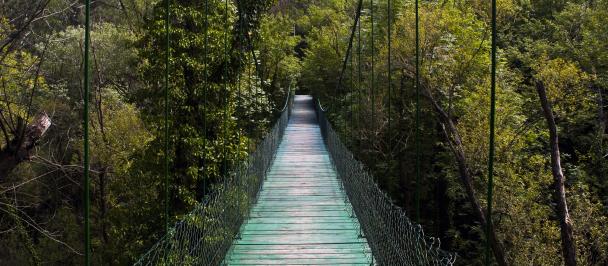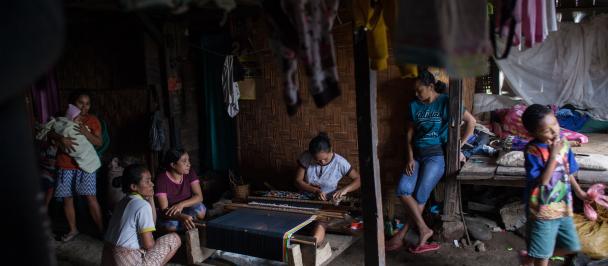Zakat is a form of philanthropy found around the world. All Muslims eligible to pay it must donate at least 2.5 percent of their accumulated wealth. As such, it is one of the largest forms of wealth transfer to the poor and needy in existence. Inspired by the Muslim faith, Zakat is now a global phenomenon of relevance and not only in Muslim majority countries.
In this article, we offer four tips when considering engaging with Zakat for the UN Sustainable Development Goals (SDGs):
- Zakat is a philanthropic pool too large to ignore;
- Zakat is highly aligned with the SDGs;
- UNDP has already begun harnessing Zakat for SDG projects; and
- Engaging with Zakat is an opportunity for a wide range of stakeholders.
Too large to ignore
The potential size of the annual Zakat pool has been estimated between US$200 billion and US$1 trillion, according to Obaidullah and Shirazi in 2015 and the World Bank and IDBG in 2016.
The precise amount paid is difficult to ascertain, as much of Zakat-giving is done informally direct from the donor to the recipient (according to the UNDP and BAZNAS) and often in goods rather than cash. Zakat is much more prevalent than commercial Islamic finance: 98 percent of Muslims in Indonesia report observing Zakat according to the Pew Research Center, while the market share of Islamic banking is around 6 percent, according to the IFSB. The pattern is similar across many countries. Considering the estimated US$2.5 trillion annual gap in SDG financing, as reported by the World Economic Forum, a funding source that may be as large as US$1 trillion per year cannot be ignored.
Alignment with the SDGs
Alleviating hunger, poverty and inequality, promoting peace and protecting the environment are central to the core Islamic principles known as the Maqasid Shariah. The Quran identifies eight categories of eligible use for Zakat, including helping the poor and needy, refugees and displaced people and liberating those in bondage. Zakat thus aligns strongly with numerous SDGs, including no poverty (SDG 1), zero hunger (SDG 2), reduced inequalities (SDG 10) and others. Collaborating with Zakat donors and administrators reflects the spirit of partnership for the goals (SDG 17). It is about much more than mobilizing finance. Zakat and Islamic finance have an underlying philosophy that embodies socially responsible development and is associated with a wide network of organizations crucial for promoting peace, development and tolerance.
How UNDP has engaged
Through an innovative partnership, UNDP Indonesia has partnered with BAZNAS – the national Zakat collection body – to harness Zakat funding for SDG-related projects. Here’s how the partnership works:
- BAZNAS collects funds as per its organizational mandate
- BAZNAS makes grants to the UNDP to implement projects, and
- The UNDP implements projects in accordance with the UN Charter and the UNDP’s global policies.
Also, the UNDP, in keeping with its principles and policies, makes no representations about religious law and will never discriminate on the basis of religion. It only accepts grants on terms consistent with its global principles. The first major collaboration between BAZNAS and the UNDP was the installation of micro hydropower plants, which bring electricity to more than 4,500 people in four remote communities. This is part of a larger renewable energy project supported by the Global Environment Facility. Future planned projects using Zakat funds include support to livelihoods in those communities with newfound access to electricity and the protection of biodiversity. Through such projects, it is possible to see Zakat’s potential for supporting productive capacities of individuals and communities and not just consumptive or humanitarian activities such as the payment of hospital bills and disaster relief. In addition to implementing project funding by Zakat, the UNDP can also provide much-valued technical assistance to Zakat organizations and governments on enhancing the effectiveness of Zakat collection and administration, and linking Zakat with the overall SDG strategies.
What you can do
Even if you are not currently engaged with this source of philanthropic funding, Zakat can have significant relevance for you:
- Muslims who pay Zakat are encouraged to do so through formal organizations rather than directly. Further, you can raise awareness about the link between Zakat and the SDGs by talking to the Zakat organization to which you contribute and asking them if they are aware of the SDGs and how their contributions support the goals. Thirdly, encourage Zakat organizations to explore using funds collected to support productive development activities that enhance people’s livelihoods. Zakat-collecting bodies can partner with development institutions as implementation partners and sources of overall technical assistance
- Development partners can engage with Zakat collectors and contributors as a new and alternative source of funding and partnership to reach communities that need it most
- Governments can integrate Zakat into their SDG financing plans, and
- Donor institutions can seek out Zakat agencies as new co-fi nuancing partners.
In a fast-developing, middle income G20 country such as Indonesia, the UNDP is focused on how to unlock the abundant resources available and channel them to where they are needed most. A new report guides Islamic organizations, development professionals and governments on how to harness the power of Zakat and other Islamic funding and finance to achieve the SDGs.
At a recent training event in Jakarta, a colleague confessed it was his first time hearing the word ‘Zakat’ in a UNDP office. If we are to succeed in financing the SDGs, it should not be the last.
This article was first published in Islamic Finance News Volume 15 Issue 34, dated 22 August 2018.

 Locations
Locations




